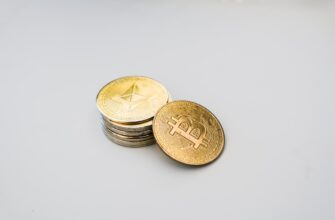Understanding Cryptocurrency and Islamic Finance
As cryptocurrency gains global traction, Muslims increasingly ask: Is crypto halal or haram? Prominent scholars like Mufti Ismail Menk have addressed this complex question, balancing Islamic principles with modern financial innovation. This article explores Mufti Menk’s insights, key debates, and practical guidance for Muslims navigating crypto.
Who Is Mufti Menk?
Mufti Menk, a Zimbabwean Islamic scholar, is renowned for his balanced approach to contemporary issues. While he hasn’t issued a fatwa specifically declaring crypto halal or haram, he emphasizes evaluating it through core Islamic finance principles:
- Gharar (Uncertainty): Prohibits excessive risk or ambiguity in transactions
- Maysir (Gambling): Forbids speculative practices resembling gambling
- Underlying Value: Assets must have tangible utility or intrinsic worth
Key Arguments For Crypto Being Halal
- Decentralized Nature: Avoids interest-based systems (riba)
- Transparency: Blockchain enables traceable transactions
- Financial Inclusion: Empowers unbanked populations
- Utility Tokens: Coins with real-world use cases (e.g., Ethereum smart contracts)
Key Concerns Making Crypto Potentially Haram
- Price Volatility: 80%+ swings violate gharar principles
- Pump-and-Dump Schemes: Resemble forbidden market manipulation
- Meme Coins: Dogecoin-like assets lack intrinsic value
- Anonymity Risks: Potential for illicit activities (e.g., dark web transactions)
Mufti Menk’s Practical Guidelines for Muslims
- Research the coin’s purpose and underlying technology
- Avoid day trading; focus on long-term holdings
- Verify projects comply with Shariah boards (e.g., Islamic Coin)
- Limit investments to <1-3% of total wealth
- Consult local scholars familiar with blockchain
FAQ: Cryptocurrency Halal or Haram According to Mufti Menk
Q1: Did Mufti Menk declare Bitcoin haram?
A: No. He urges caution but acknowledges its potential if used responsibly.
Q2: Can I mine cryptocurrency?
A: Permissible if energy costs and hardware investments follow Islamic contract (aqd) rules.
Q3: Are NFTs halal?
A: Depends on content. Digital art NFTs may be acceptable; prohibited if linked to haram media.
Q4: What crypto projects are Shariah-compliant?
A: Look for certifications from firms like Shariyah Review Bureau or ADGM.
Q5: How does crypto zakat work?
A: Calculate 2.5% of holdings’ value (if above nisab) based on lunar year ownership.
Conclusion: A Balanced Approach
Mufti Menk’s analysis suggests cryptocurrency isn’t inherently haram but requires careful evaluation. As he states: “The tool itself isn’t the issue – it’s how we use it.” Muslims should prioritize transparency, avoid speculation, and align investments with Quranic values of justice and community benefit.








